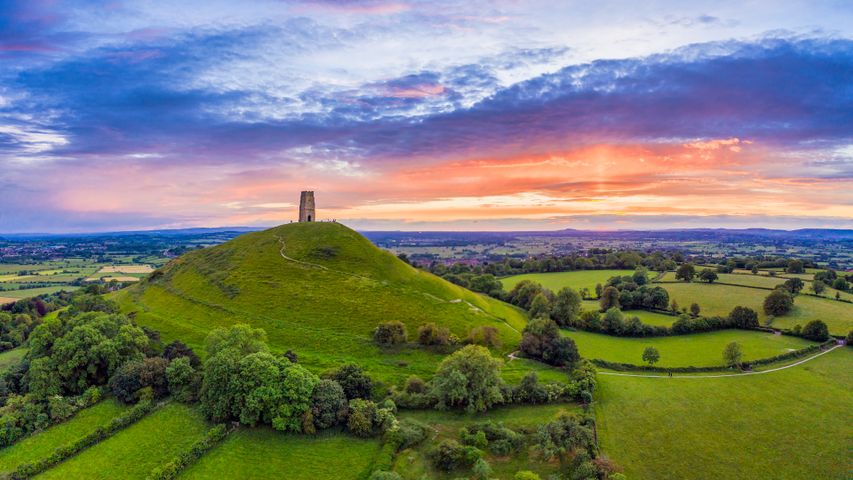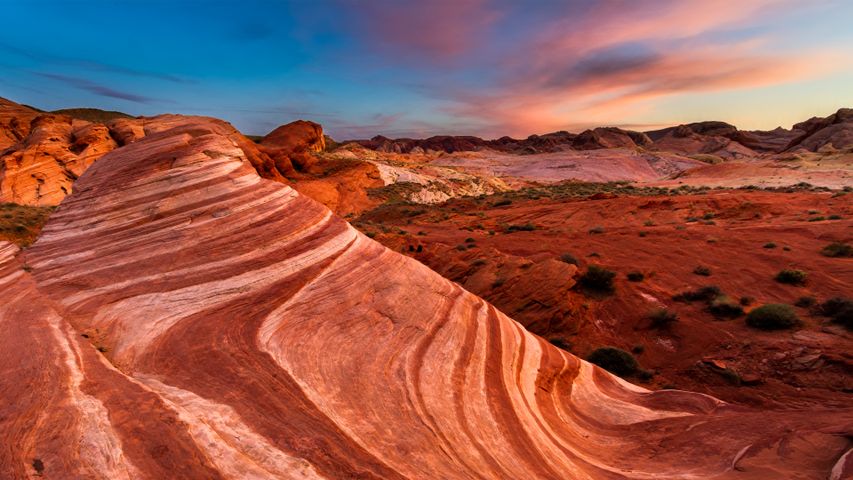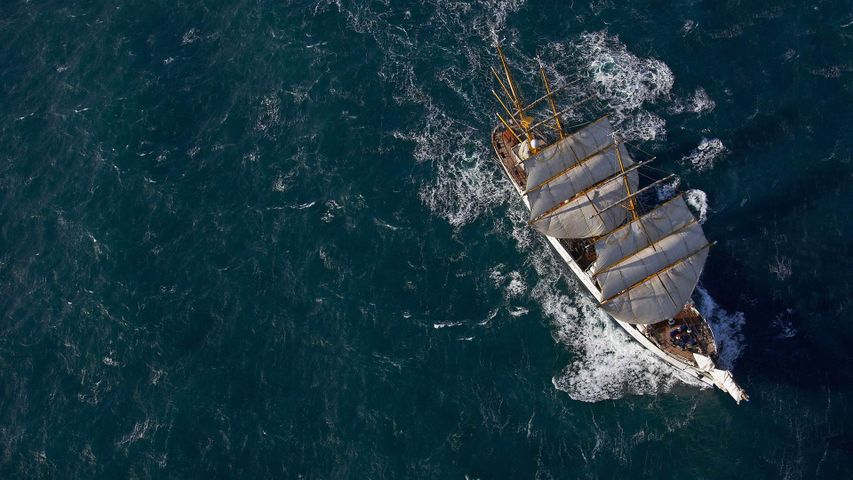Brown bear mother and cub in Katmai National Park and Preserve, Alaska
© Suzi Eszterhas/Minden Picture
The bears of summer. Brown bears, Katmai National Park and Preserve, Alaska
Summer up north belongs to the bears. When the sun reigns, so do the brown bears of Alaska—like this mother and cub in Katmai National Park and Preserve, about 260 miles southwest of Anchorage. Also known as grizzly bears in Alaska, the brown bears pack a year of living into the summer months, foraging, feasting, frolicking, fighting, and mating under skies of nearly perpetual daylight.
The Alaskan varieties of brown bears are among the biggest in the world due in no small part to the summer bounty of food found on their home turf. Alaska springs to life in summer, and the bears take full advantage, eating up to 90 pounds of food per day. That kind of binge eating packs on 3 to 6 pounds of fat daily, which they will need to get through the long winter hibernation. It helps that grizzlies are not picky eaters. They'll eat berries, flowers, roots, fish (especially salmon), small mammals like beavers, and big ones like caribou. That diet helps them reach weights approaching 1,000 pounds. The biggest brown bears are found on the islands of the Kodiak Archipelago, off Alaska's southern coast, where a subspecies of about 3,500 bears have lived in isolation for around 12,000 years. Kodiak bears can weigh up to 1,700 pounds, three times the size of some of their North American and Eurasian cousins.
Centuries ago, brown bears flourished in much of Europe, North Africa, California, and even Mexico. Although their numbers and territory have shrunk considerably, there are still about 200,000 brown bears in the world, most of them in Russia, Canada, and the US. As such, they are the most widely distributed bear species in the world. Some of the luckiest among them are these coastal bears of Alaska. Katmai is a verdant wonderland of mountain ranges, valleys, lakes, and rivers. The lack of roads in the region keeps pesky humans at bay. (Visitors must use boats or floatplanes.) In short, this mom and baby live in bear paradise, literally living large.
Related Images
Bing Today Images
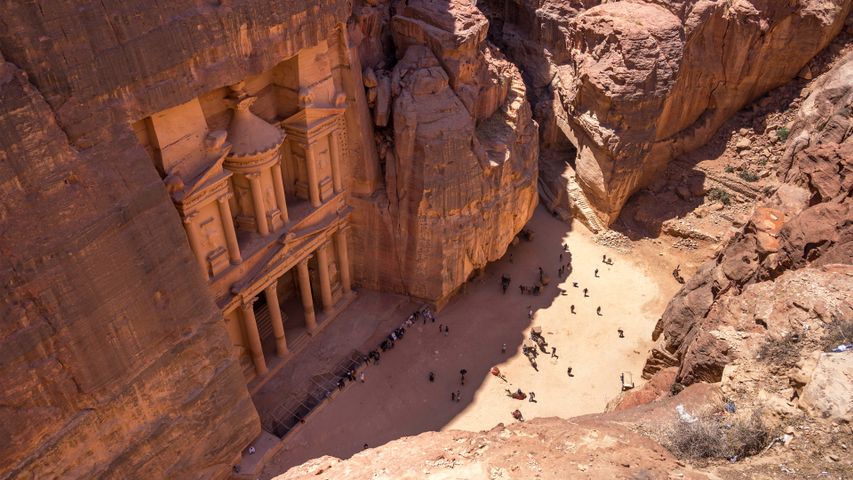
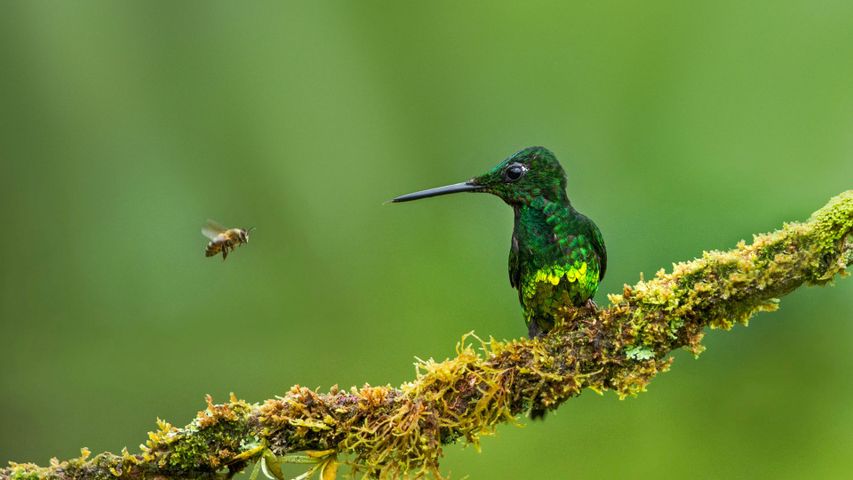
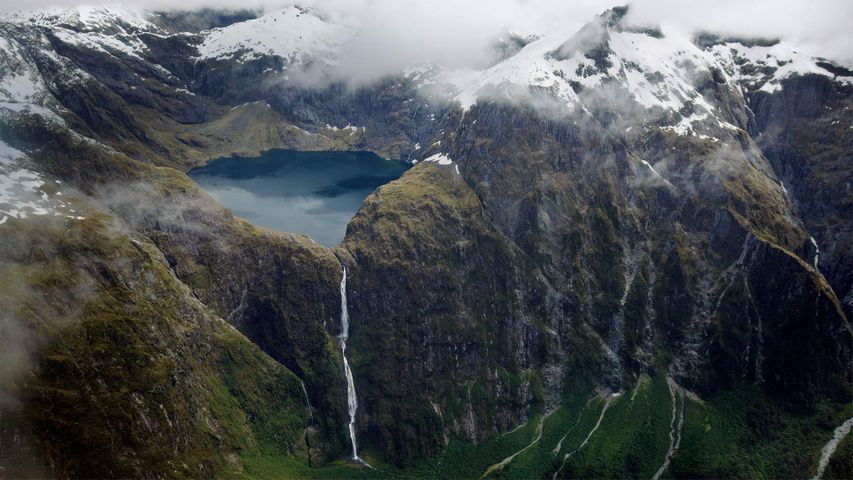
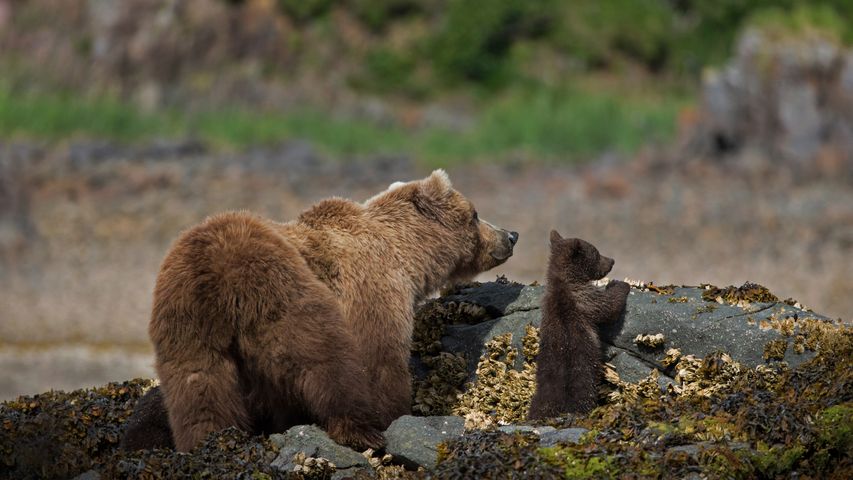
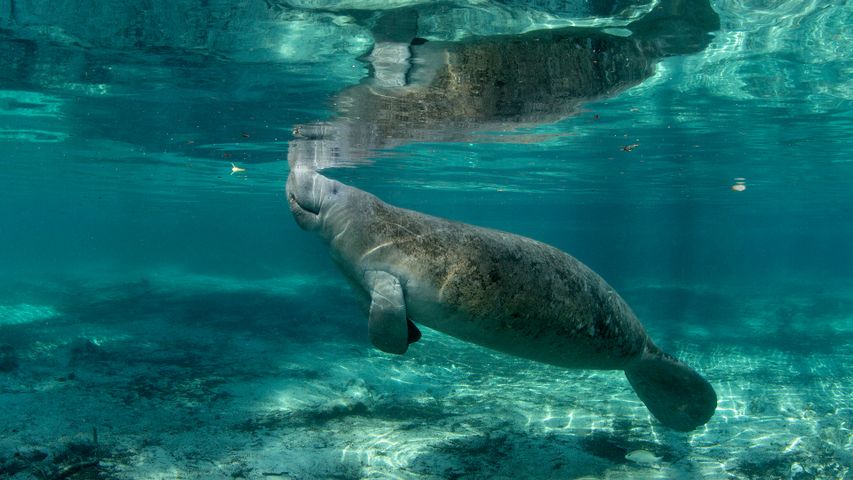 Manatee in Three Sisters Springs, Crystal River National Wildlife Refuge, Florida
Manatee in Three Sisters Springs, Crystal River National Wildlife Refuge, Florida
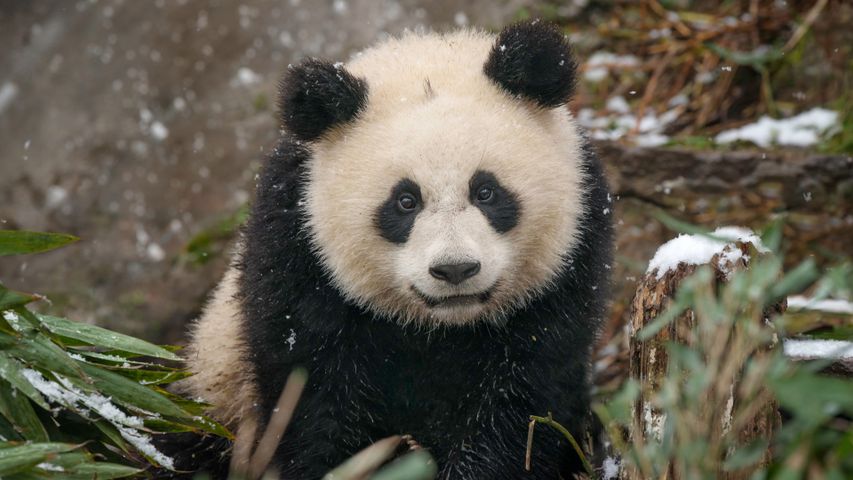 Baby giant panda in the snow, China
Baby giant panda in the snow, China
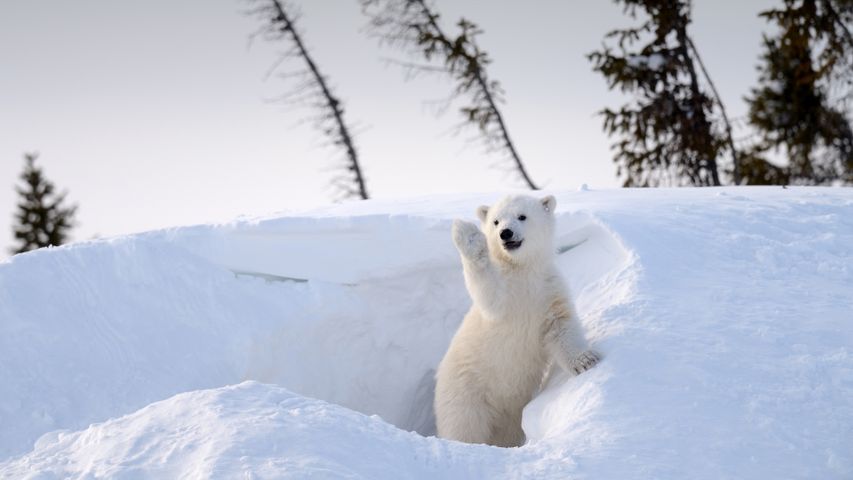 Polar bear cub, Churchill, Manitoba, Canada
Polar bear cub, Churchill, Manitoba, Canada
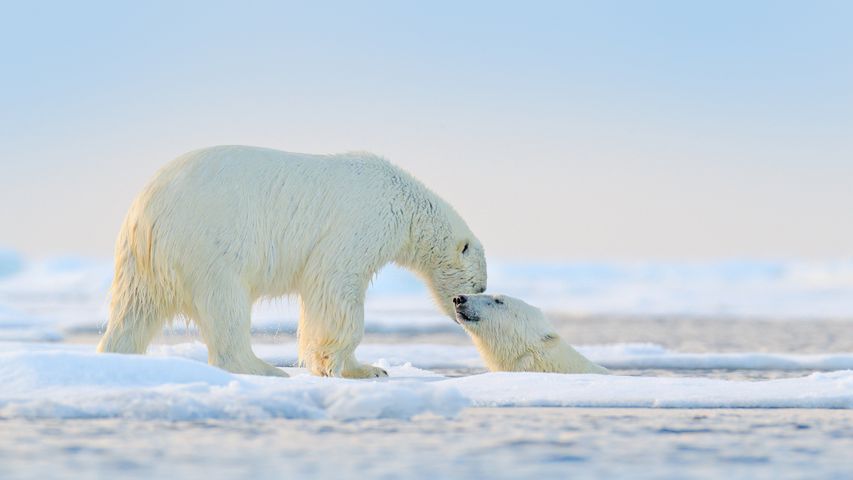 Polar bears at play in the Arctic
Polar bears at play in the Arctic
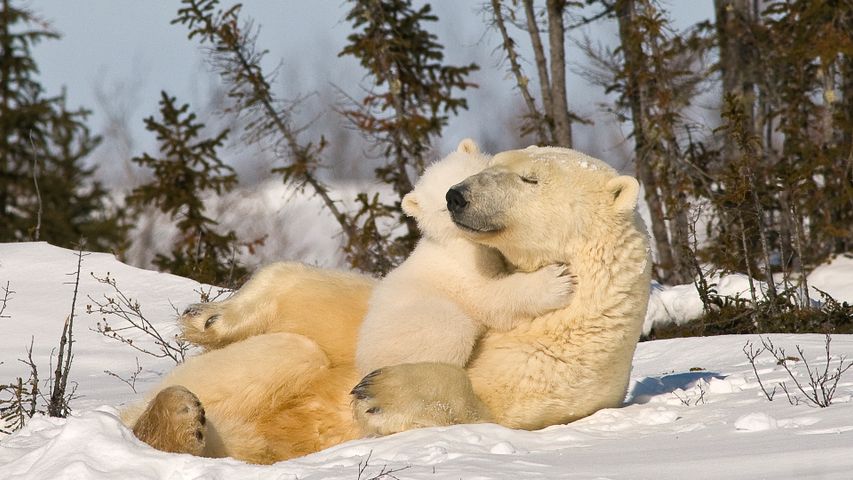 Polar bear mom and cub, Churchill, Manitoba, Canada
Polar bear mom and cub, Churchill, Manitoba, Canada
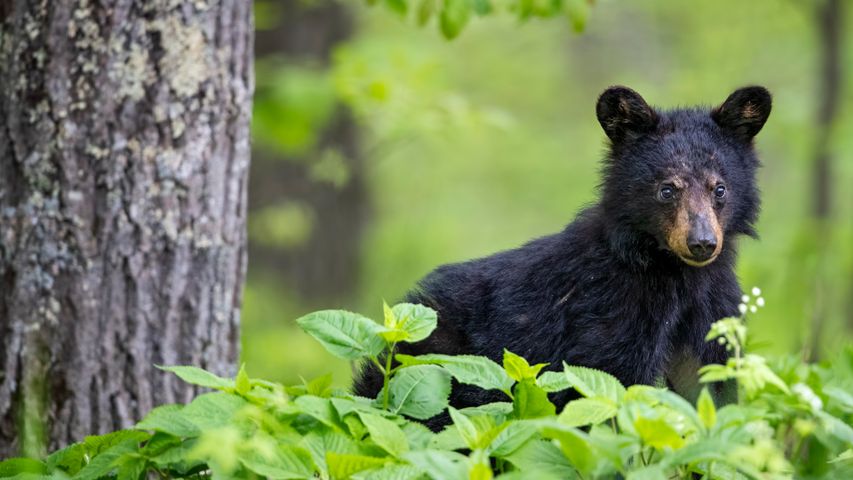 American black bear cub in spring, Shenandoah National Park, Virginia
American black bear cub in spring, Shenandoah National Park, Virginia
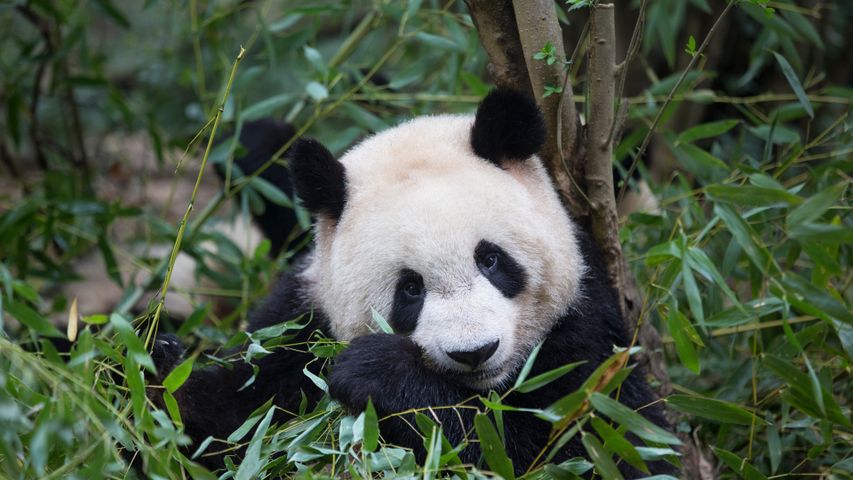 Giant panda eating bamboo, Chengdu, China
Giant panda eating bamboo, Chengdu, China
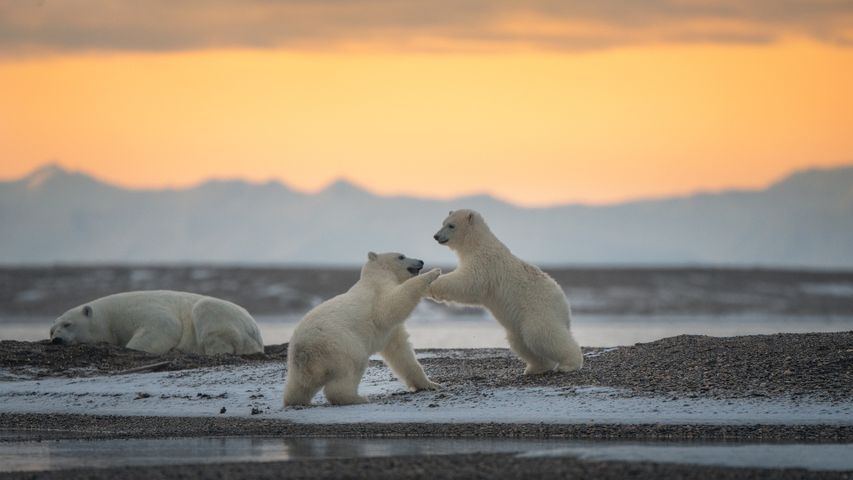 Polar bear cubs playing, Kaktovik, Alaska
Polar bear cubs playing, Kaktovik, Alaska
